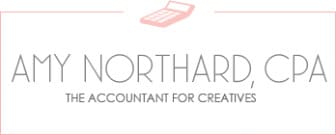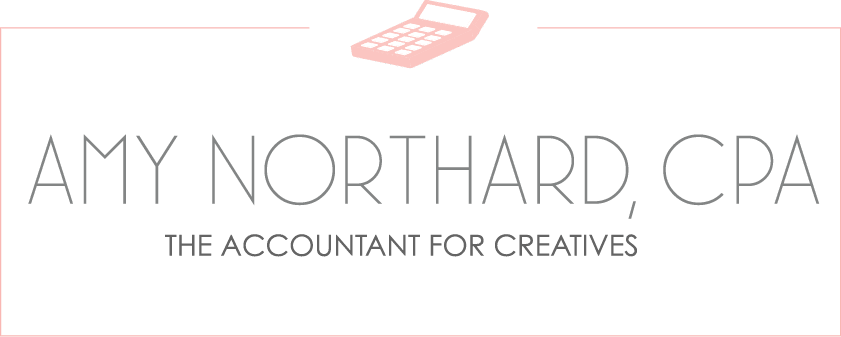You’re a creative CEO, so that means you’ve got to understand a few things about your business finances to keep your creative ship sailing into the sunset and not falling off the side of a mountain.
I know it feels like climbing a mountain sometimes with so many obstacles in your way. You want to be (and quite frankly, you have to be) the numbers person for your business.
So let’s bust 5 big myths wide open to help you be that numbers person, why don’t we!
Myth 1 – Running out of money means you need to have higher sales.
Not necessarily. As a creative small business, our sales fluctuate month after month. It seems like common sense if you can’t keep up with your bills and you’re constantly running out of money in your business that you need to make more sales.
This can be part of the problem but, when I work with creatives, a lot of the time it’s more about getting your expenses under control (so creating a budget), increasing your prices (for higher profit margins) and creating a cash flow plan (so you can see how fluctuating expenses and income impact the cash in your bank account).
Evaluate where all of your money that you do have coming in is going to see if it’s more about a need to increase sales or more about decreasing your spending.
Myth 2 – You make $25k in sales so you can afford to pay yourself at least half of that.
Paying yourself when you’re a small creative business registered as Sole Proprietorship or LLC leaves all kinds of room for interpretation. Amiright?! You’re not on payroll. There’s no one regulating how much and when you get paid.
I’d love to say there is a magic number or percentage to pay yourself but there isn’t. It varies from business to business. Your business might cost $1000 to run a month while a similar business costs $15,000 to run every month. So $25,000 in sales to you will be MUCH different than $25,000 in sales to the other business.
The best way to wrap your head around how much and what to pay yourself is creating a money plan and tracking your money (aka – bookkeeping).
Myth 3 – Looking at your competition’s pricing is a great starting point for your pricing.
While I think it can be helpful to know what your competition is charging, it’s more important that you focus on what you need financially for your business and what you offer. Your business could be WAY more expensive to run and you might offer a MUCH higher quality service and product than your competition. And you might have a lot more experience and a stronger brand.
Having a pulse on what competition is doing is important, however, basing your pricing solely off of competition’s pricing is not a good practice. You can only see and estimate one number on their income statement. You have no idea how profitable their pricing model is, which is why it’s important to price for your business needs.
Pricing is tricky. It’s not one-size-fits-all. It will forever evolve. And because you’re the CEO of our creative small businesses, you can change your pricing if you see it’s not working or time it’s to increase or change your product line to better compete!
Myth 4 – Owing income taxes and withholdings is bad thing.
Owing income taxes and withholdings is not a bad thing – it means you’re making money! It’s a VERY GOOD THING even though it’s extremely painful to write that check to Uncle Sam. When a client tells me they owed $10k in income taxes last year, I immediately think “Good for you!” That means your business did well and you made a profit.
And if you follow our estimated tax guide, you’ll be prepared to write that tax check at the end of the year without surprises.
Myth 5 – A budget restricts you from spending money.
Oh, budgets! Growing up, every time my dad told me “We aren’t buying that. It’s not in our budget.” I felt like she was punishing me all in the name of a budget. But as I grew up, I learned that budget I hated so much wasn’t actually the big bad wolf. It was a genius plan to prioritize our family’s money and keep it going where it needed to go.
The same goes for your business. If at the end of a busy month in sales, you look in your bank account to find less than a desirable amount, that feels restricting. A budget should be designed to give you control and the freedom of knowing where your money goes so you can spend it wisely!
You can be a numbers person!
I know it can feel overwhelming to tackle all things money, but you don’t have to do it alone.
Focus on tackling your biggest money hurdles first. It takes one step forward at a time. Taking it all on at once feels overwhelming and will hold you back.

